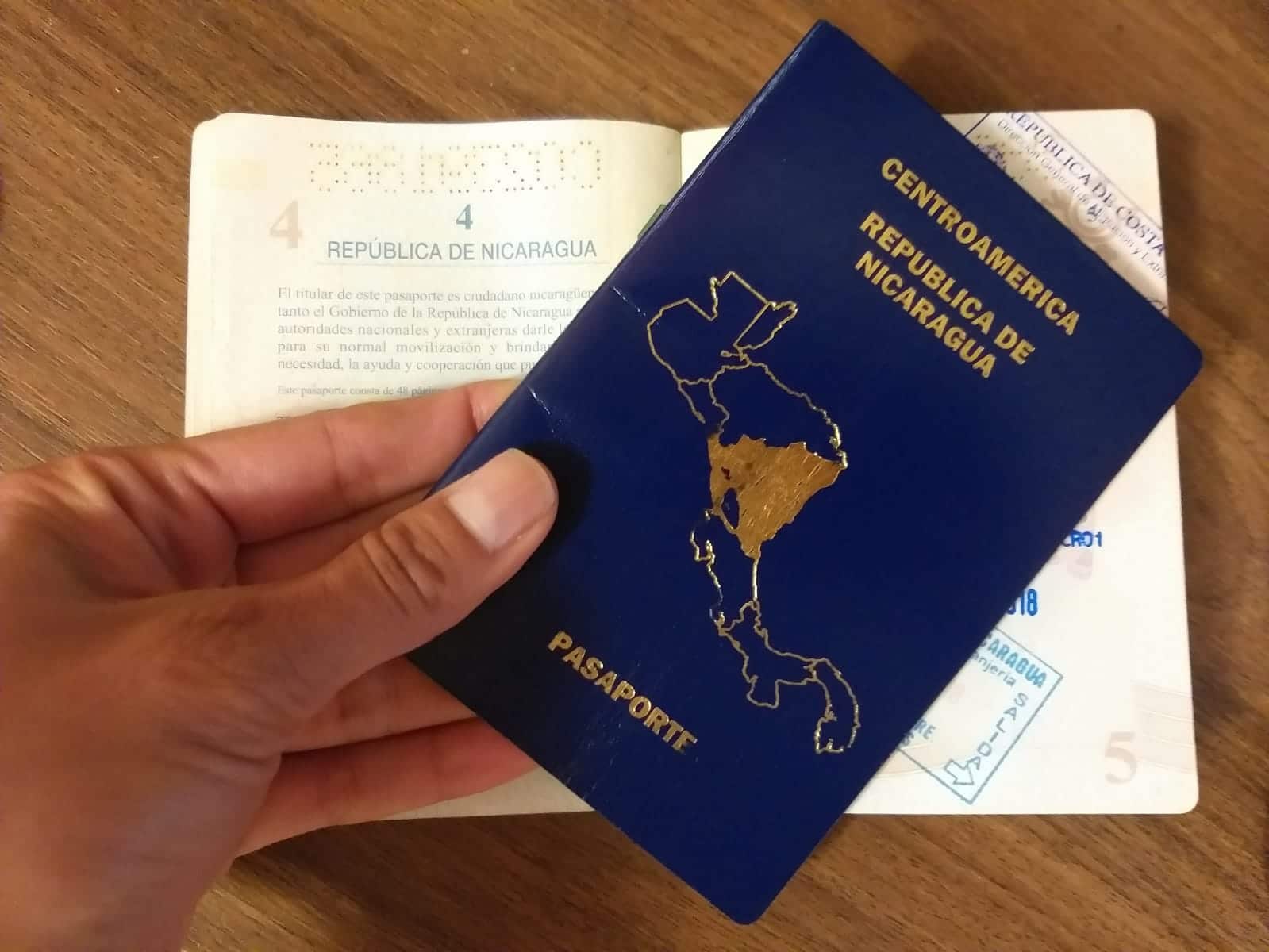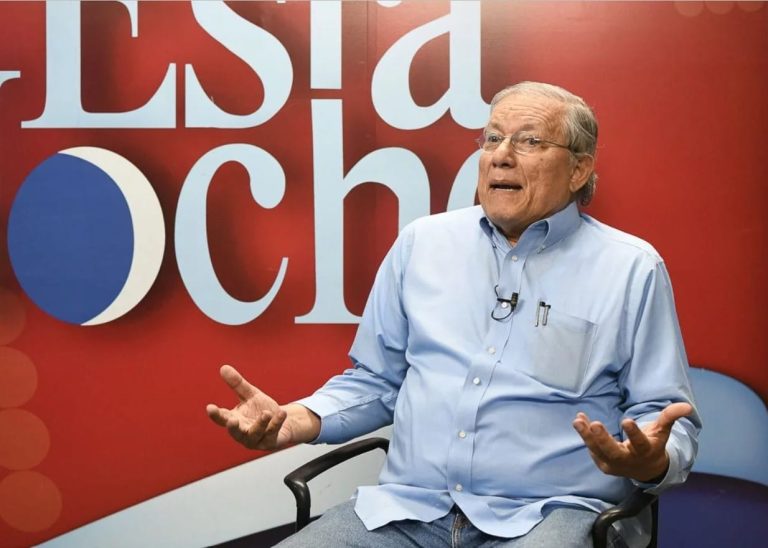26 de noviembre 2022

Nicaragua: Public Employees Hindered from Traveling to USA

PUBLICIDAD 1M
PUBLICIDAD 4D
PUBLICIDAD 5D
The State claims to be “wronged” by an intellectual exercising freedom of thought.

On November 23rd, the Nicaraguan Public Prosecutor’s Office accused sociologist Oscar Rene Vargas of an unspecified crime less than 24-hours after his detention. The intellectual critical of Daniel Ortega’s regime was abducted while visiting his sister, who is in delicate health in Managua.
The authorities did not specify his crime but maintained that the State is the “victim or has been offended” by Vargas, who in the 1980s was an advisor to the Sandinista National Liberation Front (FSLN) National Directorate. In prior arrests, under similar circumstances, prisoners are charged with the catch-all crimes of “spreading fake news” or “conspiring to undermine national integrity.”
The prosecutor is Yubelca del Carmen Perez Alvarado, who filed the four-page indictment on Wednesday before criminal court judge Gloria Maria Saavedra Corrales.
Vargas was an FSLN member in the 1960’s and in November 1967 rescued Daniel Ortega in the Monsenor Lezcano neighborhood of Managua, when he was about to be captured, an act that the sociologist never regretted, as he told Nicaraguan journalist Fabian Medina in Infobae in 2019, while in exile.
Vargas would later return discreetly to Nicaragua, where he did not have any public exposure, but kept up an intense intellectual work. He published his critical articles on his blog and presented his analysis to different independent media outlets, regarding the crisis of the FSLN, Ortega and the sociopolitical crisis impacting Nicaragua.
Both the prosecutor and the judge assigned to the case of Oscar Rene Vargas have stood out for carrying out judicial processes against political prisoners. The academic was arrested in an operation carried out by the Special Operations Directorate, made up of police officers who are supposedly in charge of drug-trafficking and terrorism operations.
The sociologist and economist did not resist, according to sources close to his family. He was taken to an unknown location.
One of judge Saavedra Corrales recent cases is related to the Catholic Church, the target of a fierce persecution by the dictatorship.
The judge imposed 90 days of imprisonment to “investigate” the priests and laymen who accompanied Monsignor Rolando Alvarez, Bishop of Matagalpa, when he was forcibly transferred—after the police assault to the Curia—last August 19.
Perez is part of the network of prosecutors and judges who have executed Ortega’s order to convict political prisoners, in a repressive escalation unleashed by the regime to impose fear among citizens. There are currently 219 political prisoners in the country, who are confined in the prison system that has been denounced for practicing torture and for eliminating constitutional guarantees.
These judicial officials would be engaging in the crime of malfeasance and torture, according to an investigation published months ago by Confidencial. In fact, the prosecutor was sanctioned by the United States last June as part of 23 Ortega’s judicial operators who are characterized as tormentors of prisoners of conscience.
Upon learning about the charges against Vargas the Nicaraguan Center for Human Rights (CENIDH) held the Ortega-Murillo regime accountable for whatever happens to the intellectual, who is 76 years old and who has a pacemaker.
“His life is at risk. We urge his immediate release,” demanded the renowned organization that emphasized his innocence and added that his relatives and his defense lawyer have been able to deliver him water, but he needs specialized health care.
The arrest of Vargas, author of 36 books and co-author of 20 more, has caused reactions at the international level. The Office of the United Nations High Commissioner for Human Rights (OHCHR) calls the arrest arbitrary and affirmed that prison officials at the infamous El Chipote jail, have denied that they are holding him.
OHCHR asserted that this is a recurring pattern and could be called “short-term forced disappearance.”
The Latin American Sociological Association also expressed its strongest protest and emphasized his work in a statement.
“His important analysis and research work is reflected, among other aspects, in the publication of dozens of books and hundreds of articles both in Nicaragua and abroad,” the organization stated.
According to Vargas’s webpage he is also an economist. He studied at the University of Laussanne (Switzerland), and at the Graduate Institute of International and Development Studies (Geneva), among others. And he holds a PhD in political economy from the National Autonomous University of Mexico (UNAM).
In one of his latest articles, Vargas analyzed a document from the International Monetary Fund on Nicaragua, issued after the organization visited the country between November 7 and 15.
The multilateral organization said the economy is recovering and its outlook is favorable. “Although the dictatorship has no formal agreement with the IMF, the measures that it will implement in 2023 are harsher than those recommended by the IMF in its structural adjustment programs. A worse situation than the current one is coming: more unemployment, greater migration, reduction of purchasing power, inability to buy enough basic foods, malnutrition, hunger, and more discontent among the citizenry,” the sociologist stated.
This article was originally published in Spanish in Confidencial and translated by Havana Times
PUBLICIDAD 3M
Periodista nicaragüense, exiliado. Comenzó su carrera en el año 2000, cuando todavía era estudiante. Por sus destacadas investigaciones periodísticas ha ganado el Premio Ortega y Gasset, el Premio Internacional de Periodismo Rey de España, el Premio a la Excelencia de la Sociedad Interamericana de Prensa, y el Premio Latinoamericano de Periodismo de Investigación del Instituto Prensa y Sociedad (IPYS).
PUBLICIDAD 3D